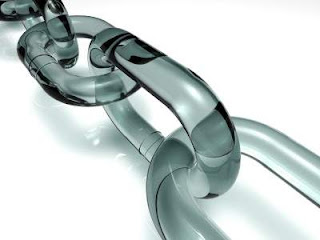A backlink is simply another live link on the Internet that directs back to the site that is being promoted. The ultimate goal of an seo campaign is to create many backlinks, therefore causing an increase in notoriety and presence for the site. Backlink production takes time and a hands on approach to accomplish correctly. These backlinks should be produced by writing press releases, ezine articles, blog posting and forum posting. Any seo company that uses some automated software secret program is not the real deal.
"Backlink" is a term that refers to links that point to a website or webpage from another website. This type of link also might be called an inlink or incoming link. Backlinks on other sites can increase a website's traffic. They also are tools used in search engine optimization (SEO), because the number and quality of backlinks that point to a website's often plays a role in the site's rank among search results.
Linking
A link allows an Internet user to click on it to navigate to or open a different webpage. When the webpage that is opened is on a completely different website from the one where the link appeared, the link would be considered a backlink for that new site. The backlink might appear as a uniform resource locator (URL), also called an Internet address or web address, or it might be a word or phrase that has the link embedded. The word or phrase usually will be highlighted in some way, such as in bold type or underlined, to let the reader know that it can be clicked on to follow a link.
Importance of Backlinks
Website owners often try to increase the number of visitors that their sites receive by increasing the number of backlinks to their sites. There are several ways that backlinks can be created. All of them might increase a site's traffic, simply because Internet users will have more opportunities to click on links to the site, but not all types of backlinks will improve a site's search engine ranking. This is because most search engines will evaluate the quality of the backlink based on things such as the popularity and nature of the site from which it originates. For example, a backlink from a website that exists only to provide backlinks to other sites — usually for a fee — is unlikely to improve a site's search engine ranking.
Link Exchanges
One way for a website owner to increase the number of backlinks that his or her site has is by creating partnerships with website owners whose sites are focused on similar topics and exchanging links. For example, someone whose website focuses on techniques for making flower arrangements might seek to partner with websites for florists, gardening stores, wedding boutiques and home décor shops. By linking to these websites on his or her site in exchange for those sites linking to his or her site, the owner of the flower arrangement website will increase the site's number of backlinks and will provide backlinks for the partner sites. Although this type of link exchange is popular among websites that focus on similar topics, it is unlikely for competing websites that focus on the same topic or have the same purpose to provide backlinks to each other.
Reviewers and Aggregators
Sites that review other websites or aggregate news or interesting items are another source of backlinks. These sites often will summarize a news story, blog post or webpage, then provide a link to it. Others look for interesting websites, review them and provide links to them. Many of the websites that provide these backlinks allow website owners to submit websites for review or allow Internet users to suggest webpages and other items to be aggregated. Personal blogs can serve a similar purpose and are another source of backlinks, especially when the blog's topic is related to the website to which the link points.
Commenting
Some website owners create backlinks by linking to their sites in comments on related webpages. For example, the owner of a website for an auto repair shop might comment on a webpage that has a new item about cars and could include a link to his or her site. It can take time to create backlinks this way, but this method can be effective.
Link Spamming
There are some websites and services that will charge a fee to increase the number of backlinks for a site. Some of these websites will disguise themselves as news sites or other commercial sites in order to keep search engines from diminishing the value of the backlinks. Backlink services often will engage in what is called link spamming — placing links on as many websites as possible, no matter what the purpose or quality of those websites is. For example, a computer program can randomly "crawl" the Internet automatically place links on any webpages that allow it to post a comment, even if the link has nothing to do with that webpage. Most search engines will try to prevent these types of backlinks from affecting their search result page rankings.

















